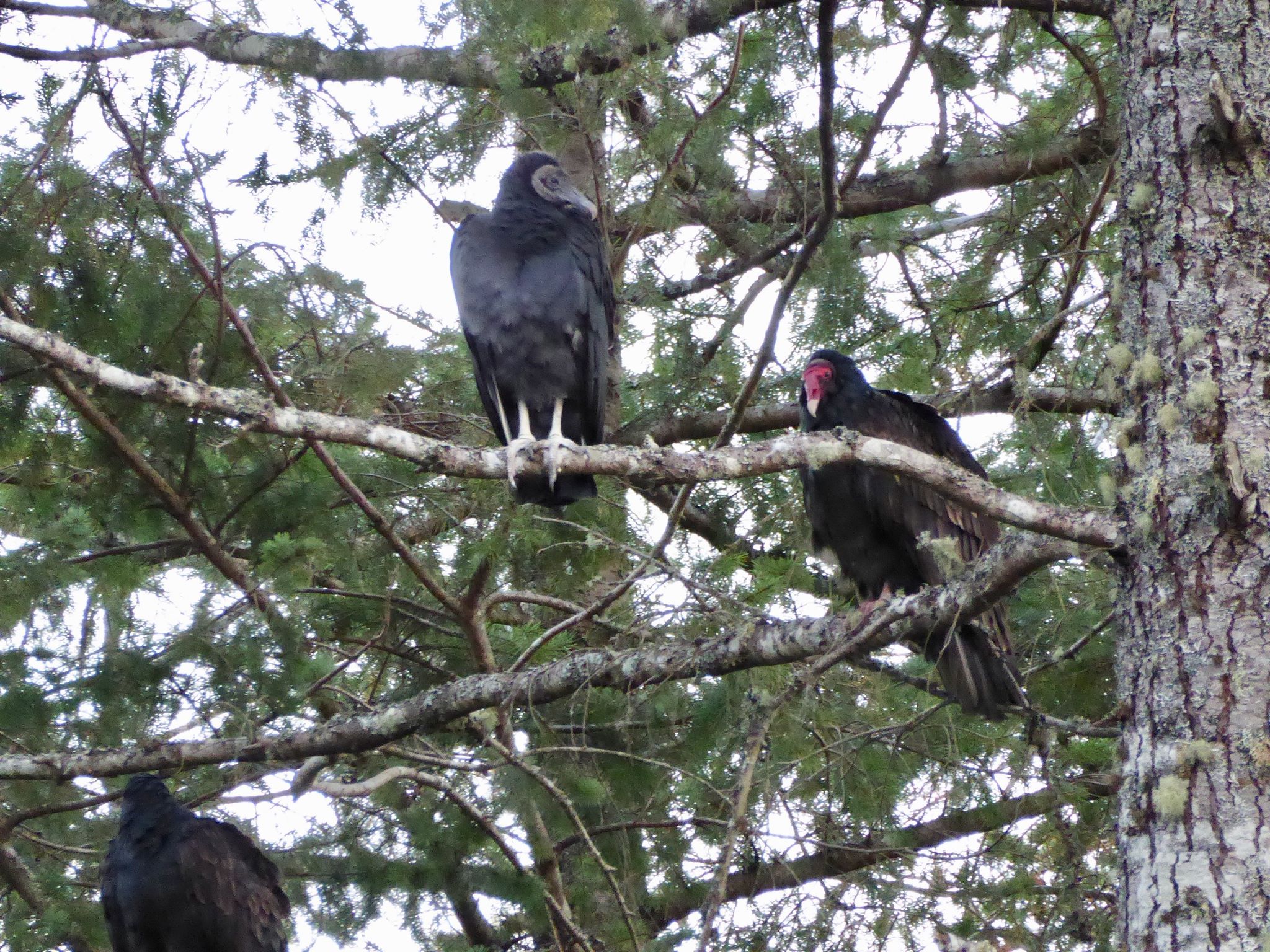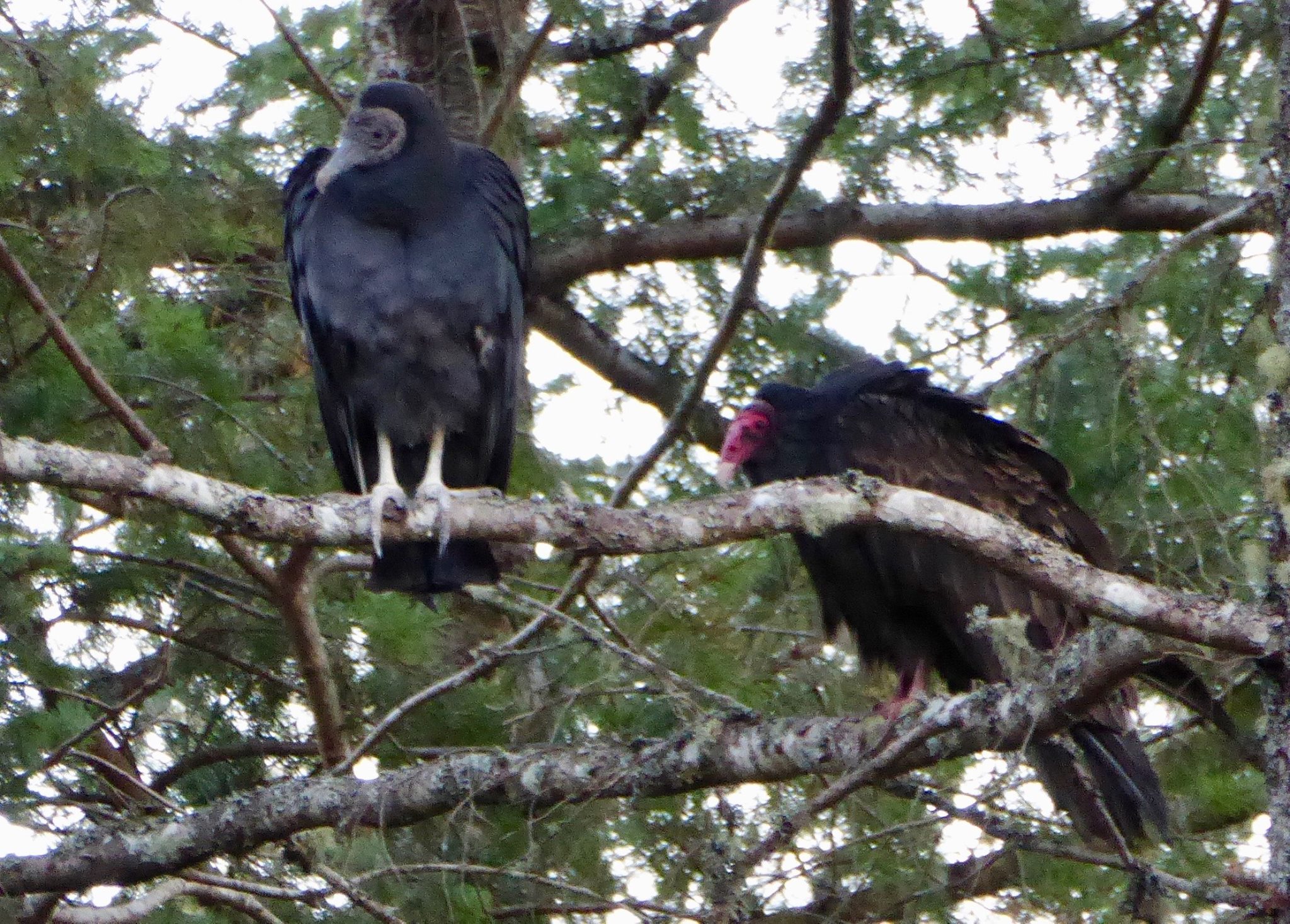
A bird that is rarely seen in British Columbia is creating quite the buzz on social media.
Over the past couple weeks, a black vulture has been seen around Metchosin on Vancouver Island several times, often with turkey vultures.
WATCH: A black vulture and wild turkey vultures dine on a deer in Metchosin on Oct. 4. (Taylor Mar/Facebook)
Robyn Radcliffe, the operations manager with The Raptors, said the black vulture is likely Balthazar, who got out of their conservation centre in Duncan four months ago.
Balthazar came to the centre two years ago with three black vultures from the state of Georgia in the United States who needed a permanent home.
“They were at a rehab facility there,” Radcliffe said. “They had been brought in injured. I think they were all hit by cars and all had varying injuries but ultimately the vet there deemed them non-releasable.”
When the birds arrived, The Raptors staff found that Balthazar, who was rescued when he was an adult could fly fairly well. Since he was deemed an animal that could not be released, he stayed at the centre.
In June, a tree fell on the bird’s aviary nets, that had been placed around some trees.
“A tree fell and plonked a hole in the netting and Balthazar got out,” Radcliffe said, adding that the other two black vultures are still with The Raptors.
“We actually watched him for two days flying with the turkey vultures, which was really cool because we had debated whether we should try and catch him again if he was not flying well.”
Radcliffe said they were very impressed with Balthazar’s flying ability.
“We just crossed our fingers and hoped that he would fly with the turkey vultures and find his way down to southern Vancouver Island in September, which it is clear he has done so.”
Radcliffe said Balthazar might stay on the island during the winter with some turkey vultures but may also migrate further south. The species typically lives the in eastern and southern United States, as well as South America. Black vultures can live in the same area turkey vultures, Radcliffe said.
“It’s not unusual in that he’s flying with the turkey vultures, that’s pretty common. They’ll often be at the same carcasses where their ranges overlap,” Radcliffe said.
According to the Rocky Point Observatory, there have been five documented records of other black vultures in the entire province. A black vulture from the wild has never been recorded in the Greater Victoria area. The animal is identified by a sooty black plumage except for white patches or ?stars? on the underside of their wingtips. The bare skin on their head is black.
“It’s really cool this is opening a big discussion on vultures because although here in North America, black vulture and turkey vulture populations are healthy, they’re doing really well, vulture populations as a group are the most endangered group of birds in the world and so vultures in Africa and Asia are not doing well,” Radcliffe said.
“A lot of it is due to poisoning and as a result of vultures declining, we’re seeing an increase in other species like wild dogs, we’re seeing an increase in human deaths due to rabies so vultures play this role in the ecosystem as the cleanup crew. They’re cleaning up all these carcasses that we don’t see and they’re actually stopping disease from spreading as well.”
Video of Black Vulture dining on Deer. Today in Metchosin at 10:18am.
Posted by Taylor Mar on Wednesday, October 4, 2017







